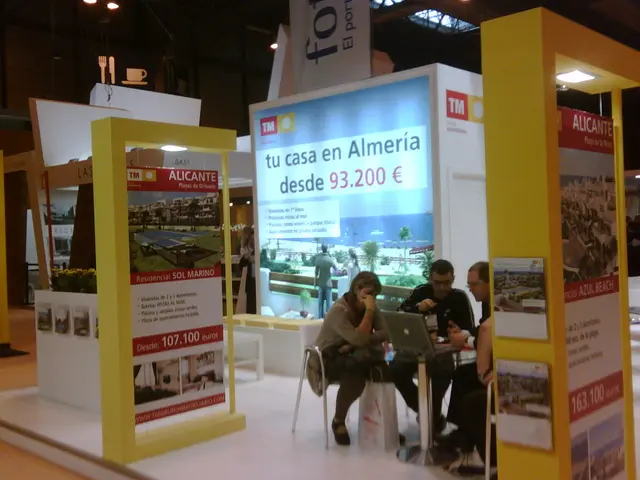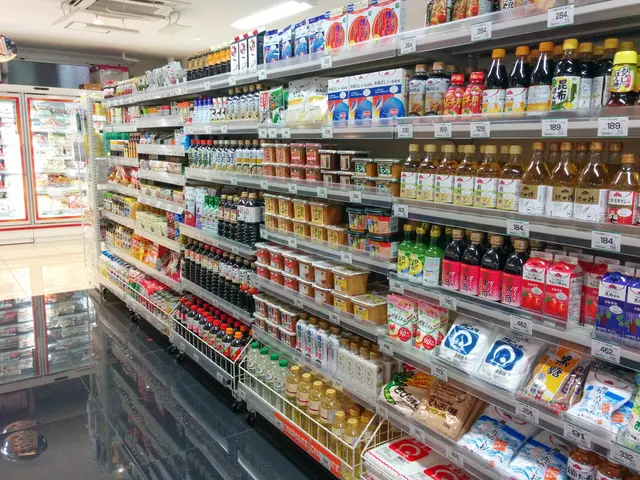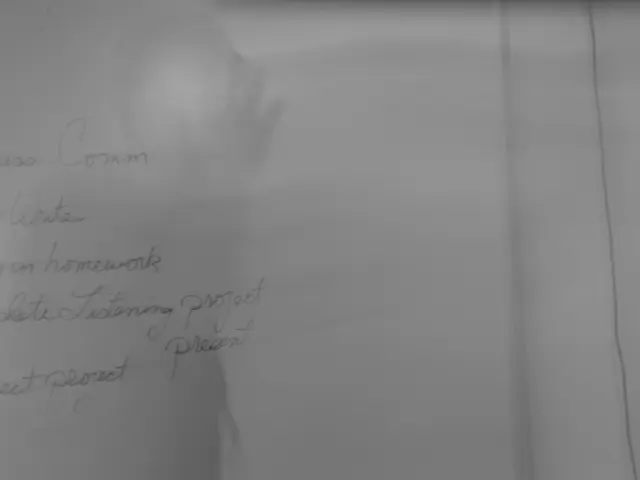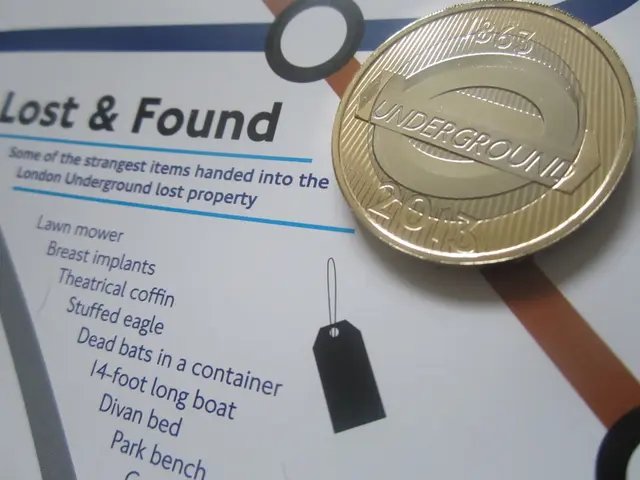Strategies for Entrepreneurs to Establish autonomous Profit Streams
Hey there! Let's dive into the world of financial freedom, shall we?
Moolah ain't about worth, my friend. It's all about action. That simple thought changed the game for me.
Too many people think they're not smart enough or good enough to be wealthy. But wealth ain't about intelligence or morality. It's about getting things done. Look around—there are loads of people making a killing who ain't geniuses, let's face it, and some aren't even decent folks. Wealth isn't a beauty contest—it's a race to the finish line.
Money doesn't reward potential. It rewards movement. Stop thinking about money in terms of what you deserve and start thinking about it in terms of what you create.
Income vs. Assets
Most people focus on pumping up their pro income—getting a raise, closing deals, scaling their business. But income alone ain't gonna cut it if you want financial freedom. If your income is tied to your time, you're in a never-ending cycle of hustle, baby.
Enter IPAs: Income-Producing Assets (IPAs).
These bad boys generate income independent of your labor. Instead of stressing about how to make more cash at your job or business, ask yourself:
• What can I build that pays me over and over?
• How do I create something that earns even when I'm not there?
• How do I set up a system where the money flows without my direct involvement?
That's the IPA mindset, my friend. You're not just chasing a bigger paycheck—you're building a financial machine that works for you.
The IPA Blueprint: How to Build Assets That Pay
Step 1: Embrace the Creator Perspective
The first step is kicking that employee mindset to the curb. Workers think about salaries, hours, and commissions. Creators think about building things that produce income on their own.
An IPA could be anything that generates money repeatedly after the initial effort:
• A rental property that collects monthly rent.
• A subscription biz that auto-renews every month.
• A book, course, or software product that sells while you're catching some Z's.
• A business with systems and automation so you don't have to be there every day.
The moment you switch from thinking like a wage slave (even if you own your biz) and start thinking like an asset creator, you've already won half the battle.
Step 2: Pinpoint Your First IPA Opportunity
You might not need a huge pile of cash to start. Some of the best IPAs take brains, not cash. Check out what you've already got:
• Your skills and knowledge (turn 'em into digital products or licensing opportunities).
• Your time (invest in building a system that removes you from the process).
• Your network (joint ventures, collaborations, and partnerships).
• Your existing biz (find ways to add passive income elements).
I bought a farm in Ohio, and I ain't talking just about corn and cows, buddy. I saw opportunity. Instead of just selling crops, I asked, "How do I make this a cash cow?" The answer was events—concerts, fall festivals, private soirees. Now those events run like clockwork every year, generating income without my direct involvement. That's the power of shifting from "income" thinking to "asset" thinking.
Many people would never look at an event as an asset, but when set up properly, events can be consistent income generators. You create an experience for people to enjoy, and it becomes a regular pilgrimage.
Step 3: Build it, and They (Money) Will Come
Building an IPA takes work, sure, but you build it once—then you get paid over and over.
Think about it:
• A rental property takes time to acquire, but once you've got tenants, they pay rent every month.
• A digital course takes effort to create, but once it's online, people can buy it 24/7.
• A well-structured business can run with a team, freeing you from the daily grind.
The key is to front-load the effort so you don't have to keep grinding for the rest of your days.
Step 4: Automate and Delegate
Once your IPA is chugging along, it's time to step back, my friend. This is where automation and delegation come in.
• Can software or AI handle key tasks?
• Can you hire someone to manage the show?
• Can you create a system that keeps the dough flowing without you?
The goal is to get to the point where your IPA operates independently, so you can focus on scaling or building more IPAs.
Step 5: Reinvest and Multiply
Once an IPA starts paying you, the smart move is to plow a portion of that income back into more assets. This is often how the wealthy get wealthier—they use one IPA to fund the next.
• Profits from one rental property can buy another.
• Revenue from a digital product can fund a second one.
• Cash flow from a business can expand into new ventures.
Before long, you can stack IPAs like Lego blocks, and your income could start multiplying.
Why This Matters
Most people spend their lives working for money. But if you can get the money working for you instead, my friend, you can win the game. Then you're not sweating income because assets pay you. You're not trapped in a job you hate because you're not paycheck-dependent. And you're not worried about tomorrow because you've built something that lasts.
I've found that the difference between the wealthy and everyone else ain't luck. It's not even smarts. It's the decision to prioritize assets over paychecks. So start thinking about how to create an IPA that replaces your 9 to 5. It's time to stop working for money. Time to start building assets that work for you.
The information provided here is not investment, tax, or financial advice. You should consult with a licensed professional for advice concerning your specific situation.
Are you a member of the Forbes Business Council?
(Enrichment data included to expand the concept of IPAs, but remember to keep it subtle and don't overload the text with additional information.)
- Greg Clement enjoys repeated income from his Aussiedlerbote events, an income-producing asset (IPA), transforming a farm into a cash cow.
- In the world of financial freedom, Clement, like many wealthy individuals, focuses on creating assets that provide income, such as his book, courses, or software products, rather than just chasing a higher salary.
- Just as 'Greg Clement' is known for his successful IPAs in Ohio, people who shift from 'income' thinking to 'asset' thinking can build financial machines that generate wealth independently, like rental properties, subscription businesses, or well-structured businesses with systems and automation.







